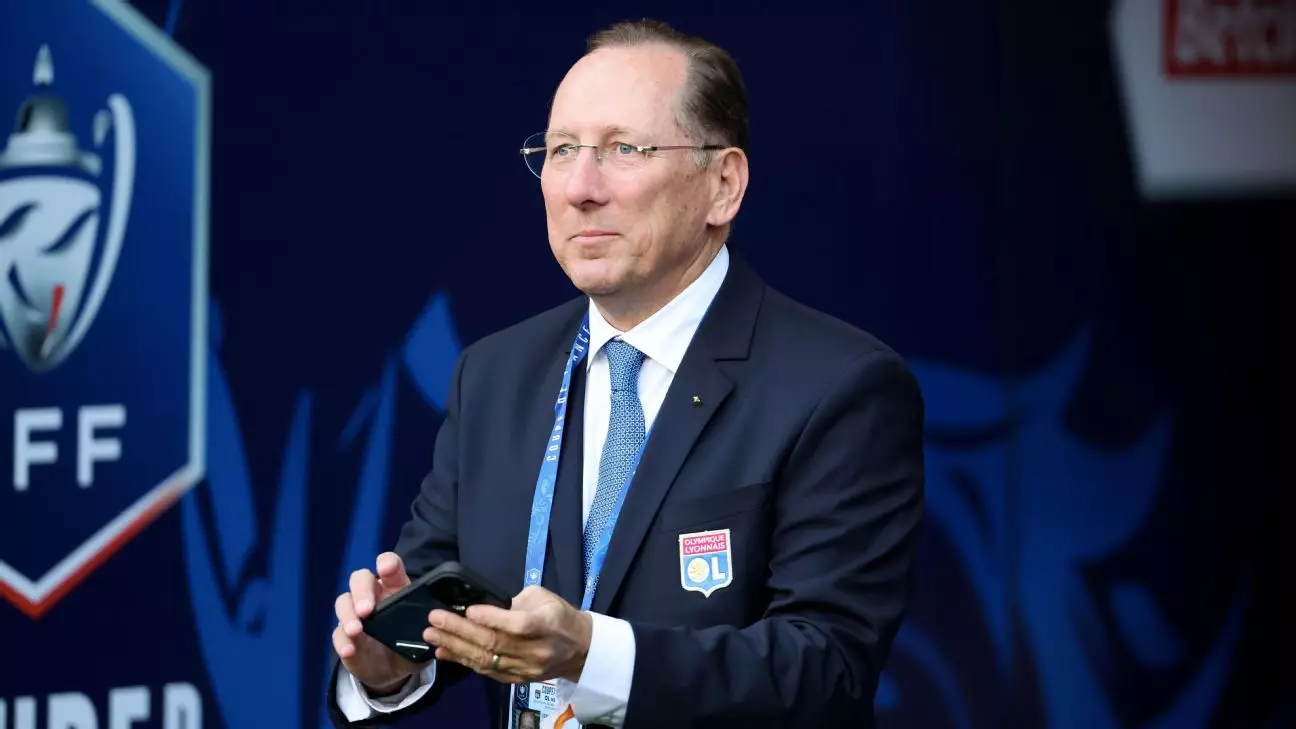The recent relegation of Olympique Lyonnais to Ligue 2, confirmed by France’s financial watchdog DNCG, marks a significant turning point not only for the club but also for its American owner, John Textor. This demotion, primarily a consequence of financial irregularities flagged by the DNCG, underscores the often daunting intersection of sports management and regulatory oversight. While Lyon’s sporting performance has been debated extensively, it is the financial governance and compliance – areas often overlooked by owners and fans alike – that have now taken center stage. For Textor, this juncture exposed a steep learning curve in understanding and maneuvering through the intricate politics and fiscal expectations unique to French football governance.
Textor’s Self-Reflection: The American Entrepreneur in a European Football Culture
Textor’s candid admission in a TV Globo interview, acknowledging his shortcomings in navigating French football politics, is unusual in a landscape where owners typically deflect blame. His openness reveals a broader cultural clash: the American capitalist ethos, which often prioritizes direct control, transparency, and profit maximization, clashes with the deeply entrenched, sometimes opaque political and regulatory frameworks of European football federations. Unlike the more commercially driven leagues in the U.S., European football requires a far more nuanced understanding of diverse stakeholder relationships, strict budgetary controls, and regulatory quasi-political dynamics. Textor’s predicament illuminates a gap not only in his own approach but also signals the challenges foreign investors face in adapting to complex local systems.
Redirecting Focus Amid Turbulence: A Strategic Pivot
Faced with relegation and regulatory rebukes, Textor has decided to step back from Lyon’s daily management. This decision reflects strategic self-awareness. Rather than persist in an operational role where he has encountered persistent hurdles, Textor intends to reallocate his energy toward Eagle Football Group’s broader portfolio, including his Brazilian club Botafogo, and future UK prospects following the recent sale of a stake in Crystal Palace. This pivot suggests a savvy recalibration: leveraging his strengths in deal-making and capital management across multiple markets, rather than grappling with the opaque football bureaucracy in France. It also points to a model increasingly seen in global football ownership, where multi-club ownership groups seek synergistic benefits through collaboration and shared expertise across distinct markets.
Financial Stability Versus Regulatory Compliance
One of the more intriguing paradoxes in Textor’s commentary lies in the distinction between financial health and regulatory compliance. Despite Lyon’s relegation due to financial irregularities, Textor maintains the club is “very well capitalized” and “more liquid in cash than ever.” This discrepancy highlights how financial missteps in club governance may not necessarily stem from liquidity issues but from the way financial dealings are structured or reported – matters that football governing bodies scrutinize stringently. Lyon’s recent success, including Europa League qualifications and UEFA financial sustainability approval, contrasts starkly with the DNCG’s harsher judgment. This scenario raises broader questions about consistency and transparency in football’s financial regulations and whether stringent financial oversight might sometimes clash with on-field ambitions.
Looking Forward: The UK Opportunity and Multi-Club Synergy
Post-Crystal Palace, Textor signals an intention to acquire a new UK club, an arena reflective of his preferred business style. The English football market, with its commercial vibrancy and regulatory clarity, offers a fertile ground for an entrepreneur keen on multi-club ownership models. Textor’s emphasis on “collaboration between clubs” highlights an emerging football ownership philosophy aiming not merely to possess multiple teams, but to create complementary systems that optimize player development, scouting, and financial management. This strategy, if executed effectively, may help Textor overcome previous challenges by fostering innovation and operational efficiency through cross-club integration.
Ownership Challenges in Modern Football
Textor’s experience underlines a critical reality for many investors diving into football’s global ecosystem: success entails much more than financial muscle and sporting vision. It demands political dexterity, deep cultural understanding, and robust governance practices adapted to local contexts. The harsh spotlight on Lyon’s relegation emphasizes that compliance with financial rules is as crucial as on-field performance for preserving a club’s competitive status. Textor’s journey highlights that even well-funded, ambitious owners can falter without an appreciation for regulatory complexities and local football culture nuances—a lesson that resonates beyond Lyon to the broader sports investment community.

